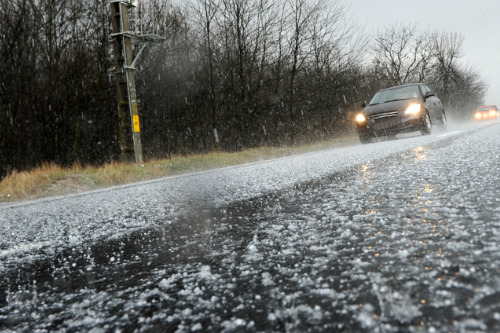

Severe weather claims hit a new annual record last year, with insurers paying out $248 million across 13,600+ weather-related claims in the 12 months to December 2020.
The new figures released by the Insurance Council of New Zealand (ICNZ) include the preliminary cost of flooding across the Wellington region in November and December of 2020, as well as the cost of the Nelson-Marlborough freak hailstorm on Boxing Day.
Chief executive Tim Grafton said that the true cost of the hailstorm is likely much higher, as the $41 million price tag only reflected the preliminary support provided by insurers.
Other major loss events included the November flooding in Napier ($73 million), the July Upper North Island flooding ($44 million) and the October Lake Ōhau fire ($35 million).
Grafton said we can expect to see an increased frequency in severe weather events due to the impacts of climate change, and noted that the government, the Reserve Bank of New Zealand and the country’s biggest banks and insurers had all been looking at ways of adapting and building a more sustainable future.
“Sadly, the impacts of climate change are very real for New Zealanders,” Grafton commented.
“Insurance plays a vital role to support our communities in managing these risks, and it has never been more important to insure adequately for unexpected events.”
“There have been a number of decisions made by the New Zealand government over the last three years, and we have established a Zero Carbon Act to achieve zero carbon by 2050,” he explained.
“That Act carries responsibilities for the Climate Change Commission, which is an independently established group of experts which will report on emissions and adaptation. I think the adaptation challenge will potentially be the bigger one, but they are really two sides of the same coin.”
“We are also seeing the Reserve Bank of New Zealand focusing on financial stability, and it is increasingly focusing on climate change exposures and the level of insurance that is in place,” Grafton added.
“International players are also maintaining a very clear focus on climate change as well as their strategic priorities – particularly around the TCFD framework, which is becoming increasingly adopted worldwide.
“In New Zealand, we will be mandating the requirement to report under that TCFD framework from 2023 for companies of a certain size, and that’ll also include the public sector.”
All ICNZ figures have been rounded to the nearest million, and the figures for the Wellington floods and the Nelson-Marlborough hailstorm are provisional.
